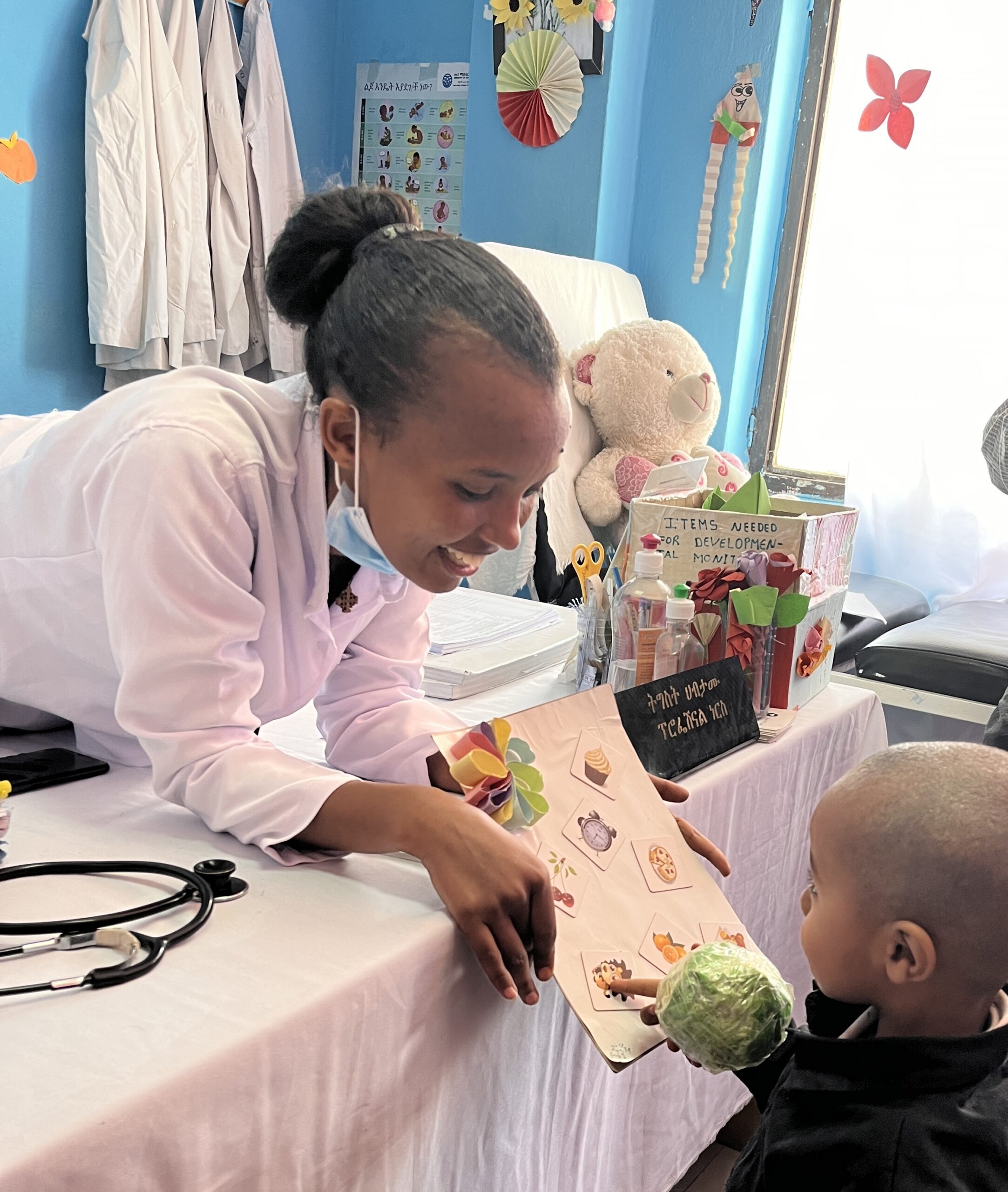PATH had initially drawn on training materials from the Care for Child Development module (WHO, UNICEF 2012). Later, based on implementation lessons and formative assessment of health services, the training models were adapted (see Evolution of Approaches and Tools).
With time, standalone ECD trainings became more streamlined and responsive to realities on the ground, especially after human-centered design conducted in Kenya and Mozambique in 2022-2023. Innovations included training community and facility providers to use the Mother Child Health Handbook to promote ECD in Kenya and making better use of long hours spent in maternity wards and facility waiting rooms. By the end of 2024, Ministries of Health in Ethiopia and Mozambique will have its national ECD training manuals, developed with technical assistance from PATH. Pilot training videos have been developed in Portuguese and English to support training roll out.
In all three countries, competency-based mentoring tools were developed for use after the trainings. Assessment done in Mozambique suggested that regular mentoring using such tools led to improved provider performance. However, to increase ownership, PATH has also been working on integration of some items into existing supportive supervision tools. This work is still ongoing.
Additionally, relevant content has been gradually integrated into several government in-service training manuals, among them Integrated Management of Childhood Illnesses, Essential Newborn Care, management of malnutrition and others.
Our current training approaches have both strengths and weaknesses. The trainings seem to be effective in conveying the importance of ECD to providers and in helping them counsel on early learning activities with user-friendly tools. At the same time, promoting responsive care and child-friendly services remains an ongoing challenge, as does increasing the consistency of developmental monitoring. We invite partners to explore and address these challenges, building on work already done.

